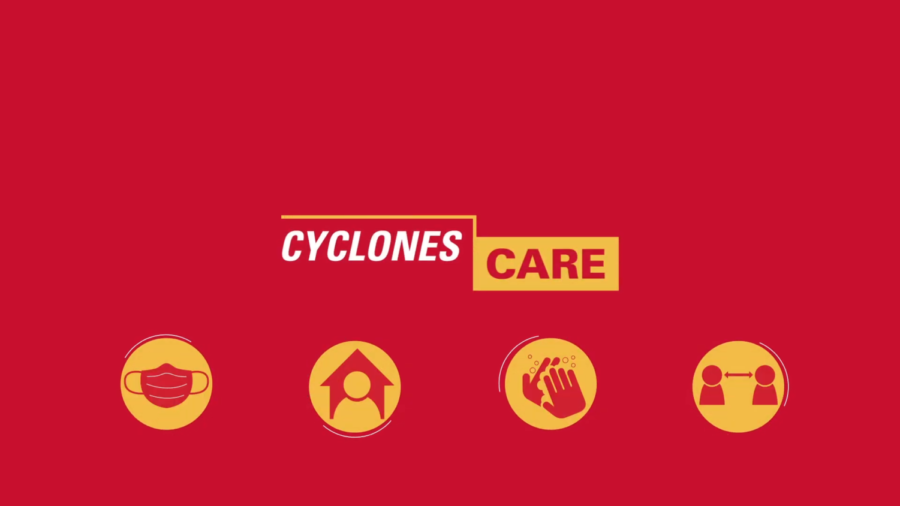Editorial: Reviewing the symptom tracker
The ISD Editorial Board reviews the university’s daily Symptom Tracker, a survey sent to students as part of the Cyclones Care campaign.
September 14, 2020
Some students have been calling for Iowa State to move all online to keep students safe from COVID-19; however, there is one overlooked protective policy at Iowa State that deserves two thumbs up for its effectiveness in student safety: the symptom care tracker.
The symptom care tracker may seem like just another daily reminder COVID-19 is still a thing, but that’s not all it does! It can also be credited with so many other positive attributes that keep students and faculty safe.
One of these being the personal responsibility that comes with decision-making in the era of COVID-19. The symptom care tracker relies on personal responsibility within students to:
-
Answer the questionnaire (is a one-question survey still a questionnaire?) truthfully
-
Follow the survey’s suggestion for staying home if they have symptoms
-
Care about the tens of thousands of students and faculty at Iowa State when making decisions
It is, without a doubt, that college students — and specifically Iowa State students — are beyond capable of making responsible decisions in the effort to keep fellow peers safe. Well, except for the occasional house party that results in lawns packed with maskless students. “801 day,” I’m looking at you.
But hey, we understand. Even heroes need a break sometimes and, come on, did you really expect socially distanced parties? So, yes, of course students (almost) always make decisions with their peers’ safety in mind.
Regardless of self-responsibility, the symptom care tracker is extremely efficient at monitoring symptomatic cases in a student population that is largely asymptomatic! Talk about ~quirky~ am I right?
Rest assured, the symptom tracker is only one question, so even if you are asymptomatic, you aren’t wasting that much time filling it out every day. Efficient, right?
In fact, the survey is so short we don’t even mind it’s supposed to be required! And luckily Iowa State enforces the symptom tracker as strictly as they enforce social distancing, otherwise students would have stopped filling it out weeks ago! Although, I guess if that ever happened, Iowa State would know to use incentives to persuade students to keep taking it, right?
Our favorite part about the symptom checker is it doesn’t even include questions about whether you’ve been wearing your mask or socially distancing. This way, students don’t even have to feel guilty about putting their personal desires before the health of others!
Alright, so there may be a few flaws, but at least the university is trying! Or making it look like they’re trying, since this is, essentially, putting a Band-Aid on a bullet wound.
Yes, some people are benefited by using the symptom care tracker. There are students who have symptoms of COVID-19, and for the rest of the student body the tracker is a short reminder to think about COVID-19.
All in all, however, its effect is nearly nonexistent considering the number of people who test positive without any symptoms.
A survey of one broad question is not going to remarkably expel COVID-19 from campus, but if the university reconstructed the survey and incentivized it for students, results may be more helpful in reducing the spread of our novel coronavirus. There are most certainly ways to improve how the survey is marketed to students and to make more questions about students’ habits.
Students cannot rely on other students to socially distance during their free time, but the survey could suggest students stay home after they partake in nonsocially distant activities.
It’s easy to satirize something like the symptom tracker. However, the ISD Editorial Board does believe it can be improved and be made more useful for the general population. It was a good idea, but the implementation needs work.
Not every student agrees with this, but if Iowa State’s goal is to create a safer environment for students in regards to COVID-19, the symptom care tracker is not being applied usefully and should change to reflect this goal.







